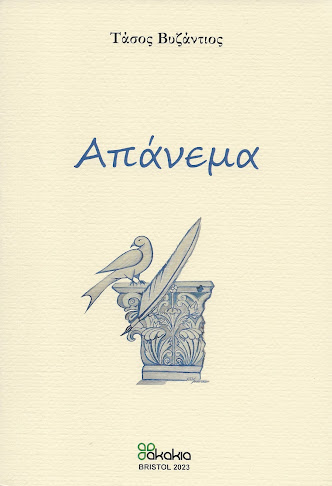…to Dr. Demetri Salapatas’ published
PhD thesis
This is a book that has been long needed. The creation of the Fellowship of Saint Alban
and Saint Sergius ninety years ago was a landmark in ecumenical affairs because
it represented a fresh and wholly distinctive way of approaching the relations
between Christians of divided confession – a way that has still, sadly, found
surprisingly few imitators. From the
beginning, the word ‘Fellowship’ was the key: the members of the Church of
England and the Russian Orthodox Church who first gathered under the patronage
of the two great national saints believed passionately that it was only in
meeting and sharing worship that they would grow together as members of the
Body of Christ. But in the climate of
the early twentieth century, this was a vision that faced formidable
challenges. Participants had to work out a pattern of practice that conformed
to the disciplines of the churches they belonged to, yet would also open up
mutual discovery at a deeper level than discussion alone. And the stress, especially in the first few
decades, on life together and the sharing of practical tasks and activities
(from ecumenical potato-peeling to ecumenical cricket matches) gave to the
Fellowship conferences a quite unique flavour. How many colloquia on high-level
theological affairs have had families and children running around? How many
have nurtured two or three generations of participants from families committed
to each other as well as to the ecumenical vision?
The Fellowship has, of course, changed greatly,
though never beyond recognition. Less
potato-peeling, perhaps, but the emphasis on informal and familial connection
is still there, and the sharing of the experience of one another’s disciplines
and traditions of worship. Over the years,
the Fellowship came to embrace people from a far wider constituency than the
original Anglo-Russian groups – Roman Catholics from the UK and elsewhere,
members of the Free Churches in Britain, and of course Orthodox from the entire
Orthodox world. The extraordinary first generation of Russian émigrés has
passed away, and a new wave of Eastern European emigration has arrived, with
new challenges to ecumenical relations.
The Church of England has become even more diverse, and its official
positions on various matters have sometimes taken it further away from its
Orthodox friends. The assumptions that
might have been made in the 1920’s about steady convergence between Eastern and
Western Christendom, even the assumptions of the great theologians of the years
between, say 1935 and 1965 about at least the growing possibility of
theological debate within a common framework, have not lasted well. The looming presence of a publicly secular
discourse has sometimes drawn churches closer, but it has also sometimes
prompted churches to withdraw into what is seen as secure ecclesiastical
territory and the reaffirmation of ‘integral’ tradition.
Yet the Fellowship has survived and flourished and
renewed itself again and again. It has
nurtured and provided platforms for some of the most considerable names of the
ecumenical world in the last couple of generations, especially among British
Orthodox: not only Metropolitan Antony Bloom and Metropolitan Kallistos Ware,
but that exceptional genius, Fr Lev Gillet, and of course the benign and
fatherly presence of Nicolas Zernov, who, perhaps more than any other
individual, was the guardian, decade after decade, of the original vision. In
turn, Anglican scholars as diverse as Eric Mascall, Donald Allchin and Gerald
Bonner have been standard bearers for this vision. The spread of the Fellowship to continental
Europe and North America has been a major factor in the history of the network,
and conferences have welcomed many of the foremost theological minds in the
European and North American Orthodox world – from Georges Florovsky and
Vladimir Lossky to Elizabeth Behr-Sigel and Dumitru Staniloae. The Fellowship’s
journal, Sobornost, has published
their work and the work of many more thinkers of note, and has in this way done
exceptional service not only to ecumenical theology but to theology and
theological scholarship at large in the English-speaking world.
My first visit to a Fellowship conference in 1972 is
an experience I can still remember with excitement and gratitude. It put before
me a model of how theology might be done and how ecumenical friendship might be
sustained that has never left me, and I cannot easily say how much I owe to
this exposure to the Fellowship’s distinctive charism. A study of its development
and inspiration, the personalities, controversies and discoveries, has long
been overdue: Demetri Salapatas has now given us just the survey we need to
take stock more adequately of what this remarkable communion of hope and prayer
has contributed to the life of the churches in Britain and throughout the
world.
Cambridge, Feast of the
Exaltation of the Holy Cross, 2017











































No comments:
Post a Comment